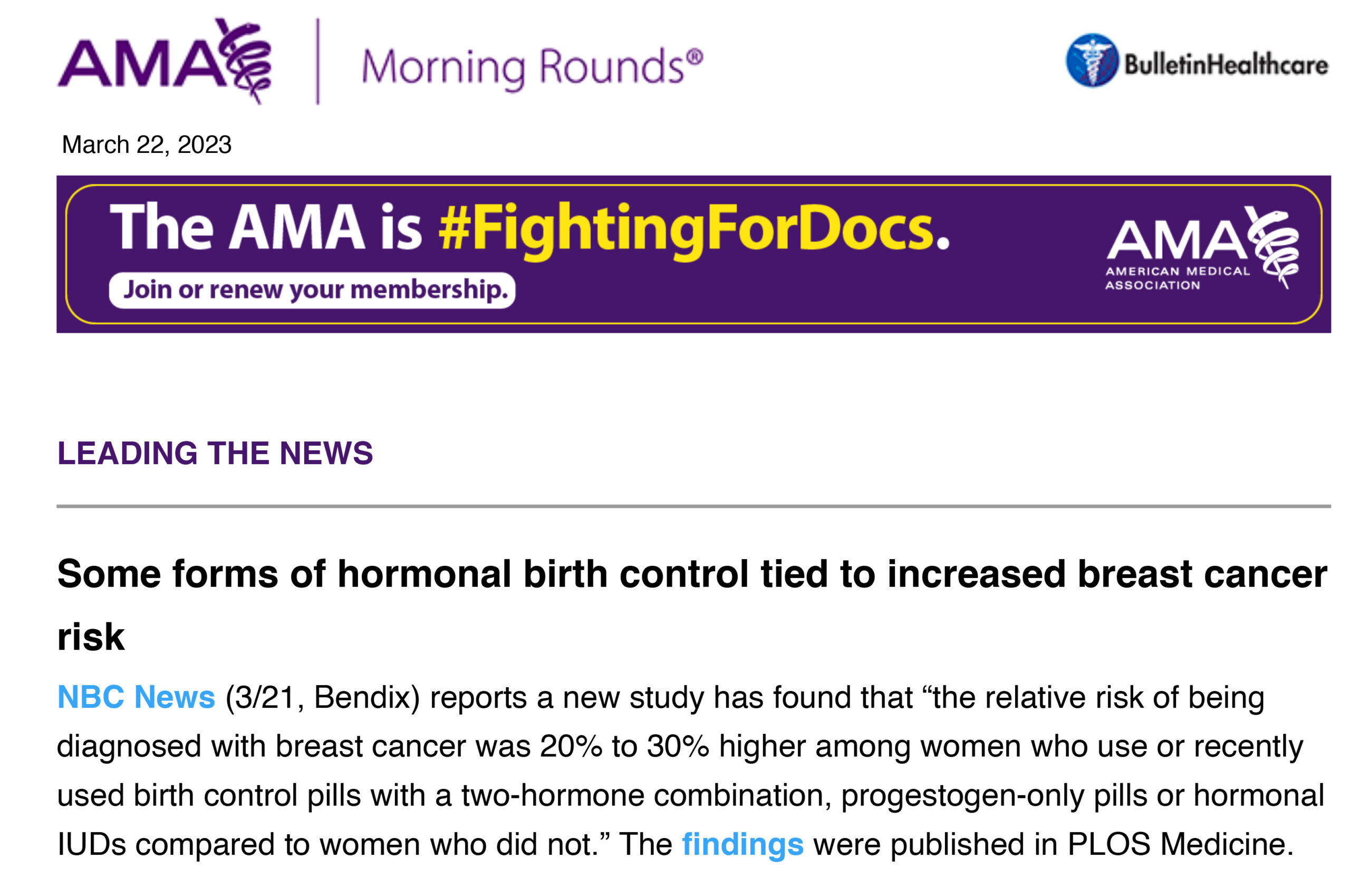- Director's Desk
AMA Warning: Hormonal Birth Control Pills and IUDs Increase Breast Cancer Risk
by Sheila St. John
Spring 2023
The American Medical Association (AMA) has announced that use of hormonal birth control, including hormonal IUDs, increases by as much as 30% a woman’s relative risk of breast cancer, and led with this news in the March 23, 2023 AMA Medical Bulletin.
Wait, you might ask—-didn’t we already know that these hormones increase the risk of breast cancer?
We did. If you attended the CANFP State Conference in San Francisco in March 2001 (yes, 22 years ago, to the month, prior to this AMA warning) you heard Dr. Chris Kahlenborn spell out the increased risk of breast cancer associated with hormonal contraception for us, as he documented so thoroughly in his book Breast Cancer: It’s Link to Abortion and the Birth Control Pill published a few months prior.
Then there is the fact that the World Health Organization (WHO) declared the pill a Group 1 (known) Carcinogen (prior to that, it was identified as a possible carcinogen) a few years after Dr. Kahlenborn’s book, I believe.
So why the big announcement now? The announcement was the result of a study published in the March 21, 2023 PLOS (public library of science), a peer reviewed weekly medical journal. This study concluded that not only does the two hormone combination pill increase the relative risk of breast cancer by 20-30%, but so does the progestogen pill, and the hormonal IUD, both often assumed to be of less risk than the combination pills. And so the “news” is that All Types of Hormonal Birth Control increase the risk of breast cancer—and even that conclusion the AMA misrepresents, with their announcement that leads with their title, SOME (emphasis mine) forms of hormonal birth control lead to increased breast cancer risk.
Was this significant health danger to women shouted from the rooftops? Were physicians advised to reconsider their prescription practices? Was it accompanied by advice that women consider safer methods for planning their family?
On the contrary, according to the online March 21, 2023 edition of TIME, Reeve (the author of the study) assures us that
“findings do not indicate the need for any changes in how physicians prescribe birth control for any of the myriad reasons that someone might want to take it. And nobody should be going to their doctor after reading the study asking to be taken off their medication”
Reeve is further quoted as reassuring women that may use or consider hormonal IUDs or progestogen only birth control pills:
“There’s no reason to be any more concerned than you would be about using a combined oral contraceptives.”
Well, I guess on that we can agree. Pick your poison.
“Picking the right birth control is all about balancing the small known risks with the proven rewards, says Reeves, “and that’s what women do every day.”’
Nothing to see here folks. Move along.
Dr. Cavanaugh, in this edition, examines some differences between contraception and NFP, with a focus on the very IUD that this study evaluated. We can add one more difference to the list. NFP will not kill you.
About The Author



